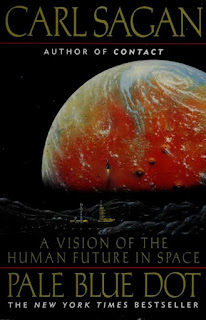 |
| Contemplating on the transience of life |
As humans, we often get caught up in our daily struggles and conflicts. We focus on achieving success, accumulating wealth, and gaining power. But when we take a step back and look at the grand scheme of things, it's easy to see that these issues are ultimately insignificant. The vastness of the universe and the age of the Earth can lead to an existential crisis and make us question the meaning of our lives.
When we consider the age of the universe, it's easy to see how brief our time on Earth truly is. Scientists estimate that the universe is around 13.8 billion years old, and our planet is only around 4.5 billion years old. Human civilization has existed for a mere fraction of that time. In the grand scheme of things, our lives are just a fleeting moment. All the conflicts and struggles that we experience during our brief time on Earth are even more insignificant.
This realization can be both humbling and overwhelming. It can make us question the meaning of our lives and the purpose of our existence. It can lead to feelings of insignificance and a sense of futility. But it doesn't have to be this way.
One of the main things that holds us back from moving on and finding meaning in our lives is our ego. We are often so focused on ourselves, our own problems, and our own successes that we fail to see the bigger picture. We hold grudges, blame others for our problems, and become consumed by our own self-importance.
But there is a way to move on from this and find meaning in our lives. The key is forgiveness. When we forgive ourselves and others, we are able to let go of the past and focus on the present. We are able to see that our problems and conflicts are insignificant in the grand scheme of things. And we are able to find peace and gratitude for the time we have on Earth.
Forgiveness is not an easy thing to do and it takes a lot of effort, but it is essential for our own mental and emotional well-being. Holding grudges and resentments can weigh us down and prevent us from living our lives to the fullest. But when we forgive, we are able to move on and find meaning in our lives.
In another word, when we consider the age of the universe and the transience of our time on Earth, it's easy to see how insignificant our problems truly are. But it can also lead to an existential crisis. The key to overcoming this is to let go of our ego, forgive ourselves and others and find peace and gratitude for the time we have on Earth. One analogy that perfectly illustrates this point is the "Pale Blue Dot" analogy.
The "Pale Blue Dot" is a photograph of Earth taken by the Voyager 1 spacecraft from a distance of 3.7 billion miles away. In the photograph, Earth appears as a tiny, pale blue dot, almost indistinguishable from the other dots in the image. It is a powerful reminder of how small and insignificant our planet is in the grand scheme of the universe.
 |
| View of Earth from 6Billion km or 3.7Billion miles away, taken by Voyager-1 on Feb 14, 1990. |
As Carl Sagan, who popularized the term "Pale Blue Dot" wrote,
Look again at that dot. That's here. That's home. That's us. On it everyone you love, everyone you know, everyone you ever heard of, every human being who ever was, lived out their lives. The aggregate of our joy and suffering, thousands of confident religions, ideologies, and economic doctrines, every hunter and forager, every hero and coward, every creator and destroyer of civilization, every king and peasant, every young couple in love, every mother and father, hopeful child, inventor and explorer, every teacher of morals, every corrupt politician, every "superstar," every "supreme leader," every saint and sinner in the history of our species lived there-on a mote of dust suspended in a sunbeam
This image is a humbling reminder that despite our problems, conflicts and struggles, we are all part of a vast universe and all humanity is on this one pale blue dot. And it's by recognizing the smallness of our existence that we can free ourselves from our own ego and find meaning in our lives.
 |
| Pale Blue Dot |
If you're interested in reading the book "Pale Blue Dot: A Vision of the Human Future in Space" By Carl Sagan, click the above picture and get a copy for yourself!